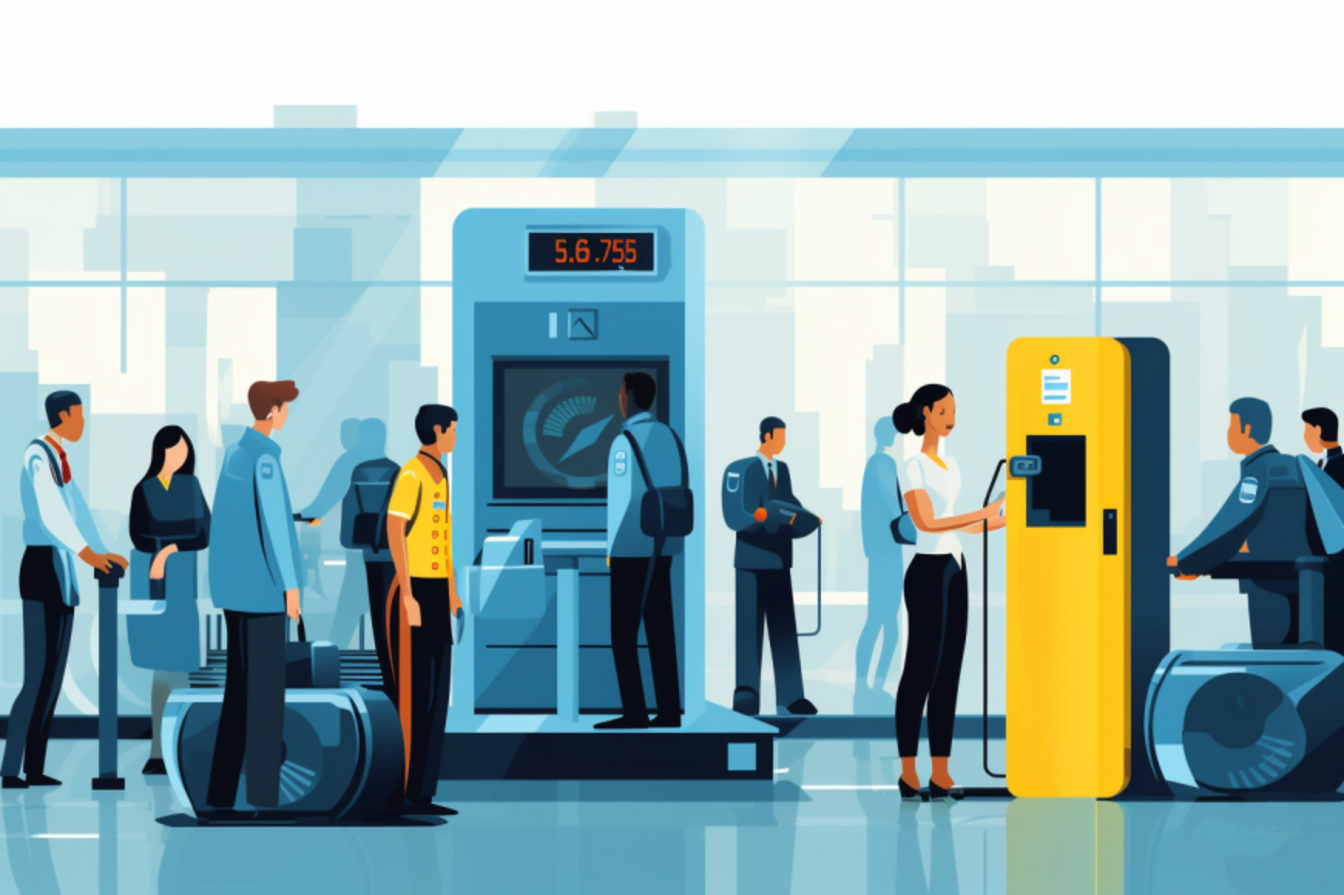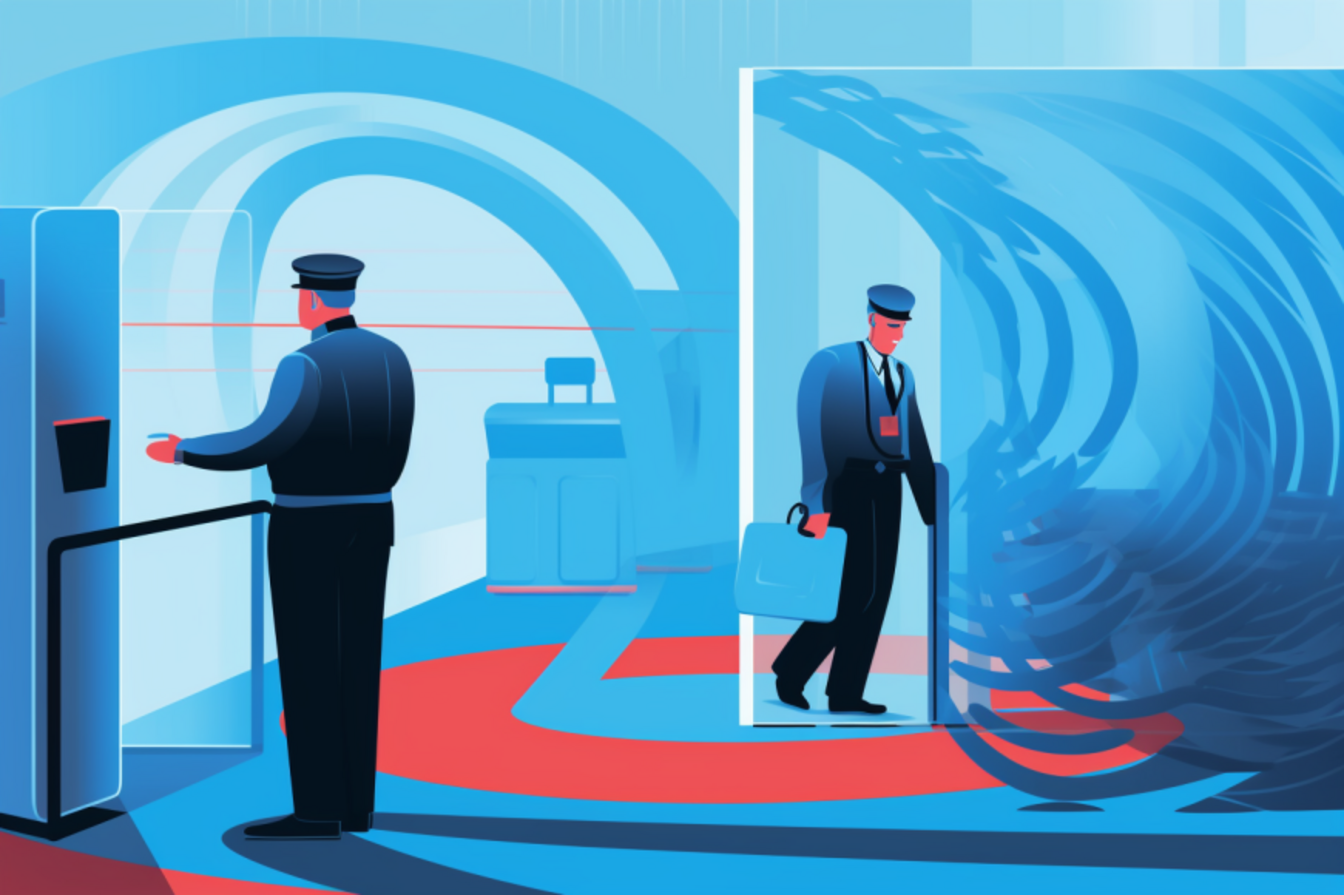If you said, “not really,” then maybe you know Theresa Putkey, a consultant from Vancouver. She had a run-in with a TSA agent recently after trying to opt out of a full-body scan, and sent a complaint letter to the agency assigned to protect America’s transportation systems.
Here’s the form response from the TSA
Thank you for your e-mail regarding the rude behavior you experienced from a Transportation Security Officer (TSO).
The Transportation Security Administration (TSA) regrets any unprofessional treatment you may have experienced.
TSA seeks to provide a high level of security and customer service to all passengers who pass through our screening checkpoints. Every person and item must be screened before entering the secured area, and the way the screening is conducted is important.
Our policies and procedures focus on ensuring that all passengers are treated with dignity, respect, and courtesy.
Please be advised that a passenger can always request to speak with the Supervisory Transportation Security Officer at the checkpoint to address any complaint regarding screening procedures.
Because your complaint concerns an incident that occurred at a specific airport, we have forwarded a copy of your letter to the appropriate Customer Service Manager.
We hope this information is helpful.
TSA Contact Center
The information was not helpful
The form response failed to acknowledge her complaint, and she hasn’t heard anything from the agency since then.
Now, don’t get me wrong: Form letters can be a helpful way for a company or agency to send the same information to many people with the identical question. But Putkey had a specific complaint, and she was hoping for a specific response — if not an apology, then a promise to investigate.
“I’m still waiting, ” she says.
“I’m writing my congressman”
If you think contacting your member of Congress will get better results, then talk to Craig Szwed, a photographer based in Hartford, Conn. He recently complained to his representative about the constitutional violations committed by TSA screeners and received the following boilerplate response:
Thank you for contacting me regarding Transportation Security Administration (TSA). I appreciate your comments and having the benefit of your views. As a frequent flyer myself, I understand your frustration with the security screening process.
After the tragic events of September 11, 2001, our nation began a much needed overhaul of the security procedures involved in air travel. Included among these necessary reforms were increased screening of passengers, cargo and aircraft personnel. Additionally, precautions including the securing of the cockpit were undertaken to further ensure the safety of the aircraft and those on board. In order to ensure the safety and security of both passengers, crew and others, the US Congress passed the Aviation and Transportation Security Act (PL 107-71), which was signed into law by President George W. Bush. Among the provisions in this legislation was the creation of the Transportation Security Administration (TSA) within the Department of Transportation. Oversight of the TSA was then transferred to the Department of Homeland Security in March 2003 after the Passage of the Homeland Security Act of 2002 (PL 107-296).
TSA is responsible for the security screening of approximately 1.8 million air travelers that pass through more than 450 airports each day. TSA officers are charged with ensuring passengers do not carry prohibited items. As a result, TSA employees are required by law to check both passengers and luggage for banned items. In order to prepare customers for the security screening process, a list of banned items is provided by both airlines and TSA in a variety of ways: on their websites, in announcements over public address systems at airports, and in posted signs throughout the security screening area. These items include weapons, lighters, and certain liquids. Passengers must comply with these rules in order to gain access to airport terminals and aircraft. While these rules are strict and often inconvenient, they help to ensure that our transportation systems are safe and secure.
In your letter you voiced concern that this screening process was a violation of your constitutional rights. But the Fourth Amendment, along with most of the Constitution, does not apply in the airport the same way it does in most public spaces. The courts have found that airline passengers also consent to be searched when they choose to fly. Federal law requires commercial airline passengers to be searched prior to boarding a plane and airlines cannot transport any passenger who refuses. Over the past 40 years, the courts have upheld the constitutionality of airport security screenings as part of an overall regulatory effort to prevent hijackings and other terrorist activity.
The Supreme Court has ruled that blanket suspicionless searches are allowed in the airport as long as terrorism poses a risk to public safety. Of course, it is worth noting that the government’s right to search citizens in an airport is not unlimited. The government must show a clear need or immediate danger to justify the level of intrusion imposed on passengers. According to the Ninth Circuit, airport searches must be no more extensive or intensive than necessary, in light of current technology, to detect the presence of weapons or explosives.
Oversight steps have also been taken in order to prevent overreach by an individual screener or the agency itself. TSA has an independent mechanism for passengers to file complaints. The independence of this mechanism is then periodically audited and reported on by the US Government Accountability Office (GAO). Congress also has taken steps to increase transparency and serve as an oversight mechanism itself. This is most often done during FAA authorization measures where legislative language is inserted to ensure civil liberties and privacy concerns are adequately addressed.
Again, thank you for sharing your views on this issue with me. Should you have any additional comments or suggestions, please do not hesitate to contact me in the future.
This form letter isn’t unique
Versions of it have reportedly been sent out by other elected officials.
What’s so telling about the email is the kicker.
“Please do not respond to this email as this mailbox is not monitored,” it says.
In other words, it’s a lecture, not a debate.
As to the form email itself, Szwed calls it “platitudes and excuses” and I can understand why. It suggests no one is paying attention to his complaints, and that even if someone did, it wouldn’t make a difference.
But a debate is exactly what Americans want, and deserve. They never had a chance to sound off on the TSA’s screening practices, which were imposed on them almost five years ago, and now, thanks to a court decision, they will finally get one. (By the way, here’s how to handle the TSA when you travel.)
With only a few weeks left to leave your comments about the TSA’s controversial passenger screening methods, here’s a question worth asking: Is anyone listening? Isn’t it time for the decision-makers in the security process to start listening, too?
Note: Effective June 1, I’m moving my TSA coverage to TSA News, a blog I co-edit. I’m returning to this site’s main mission every Wednesday, with more consumer advocacy coverage.



